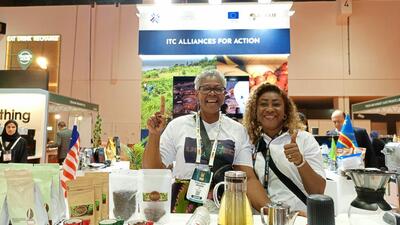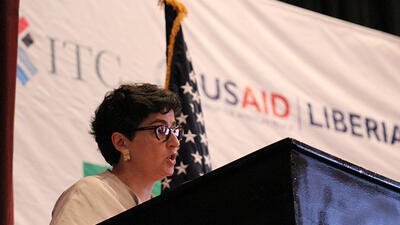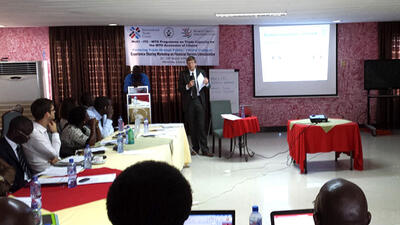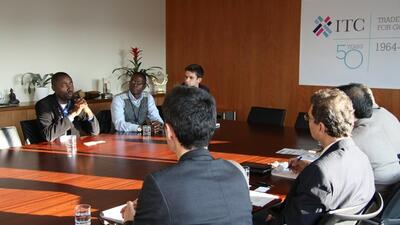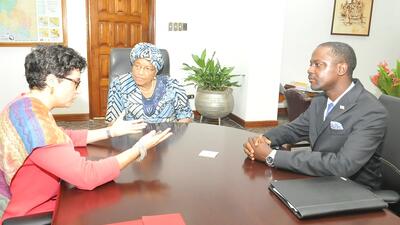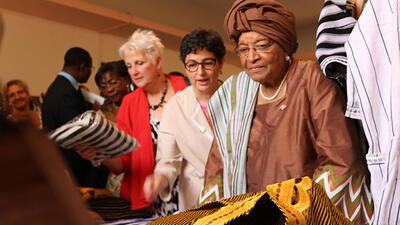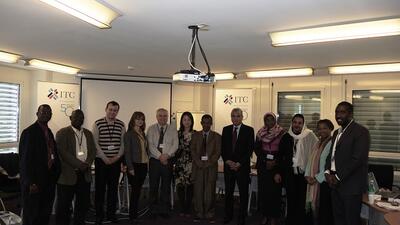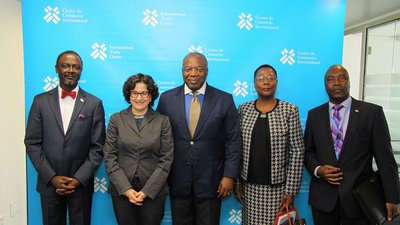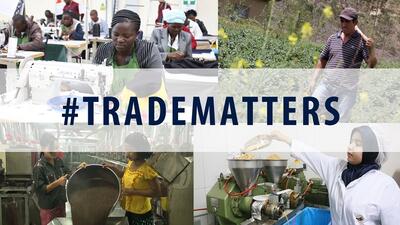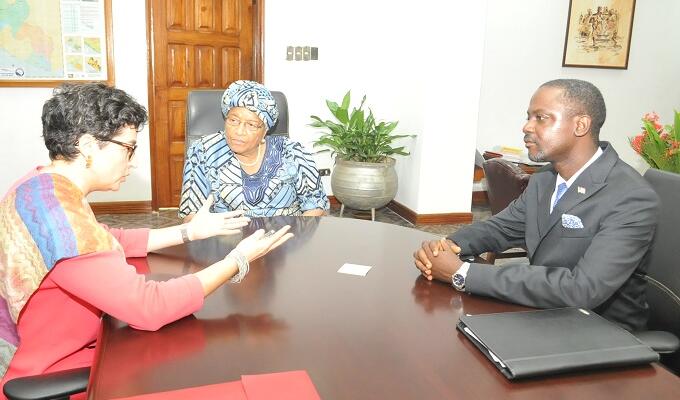
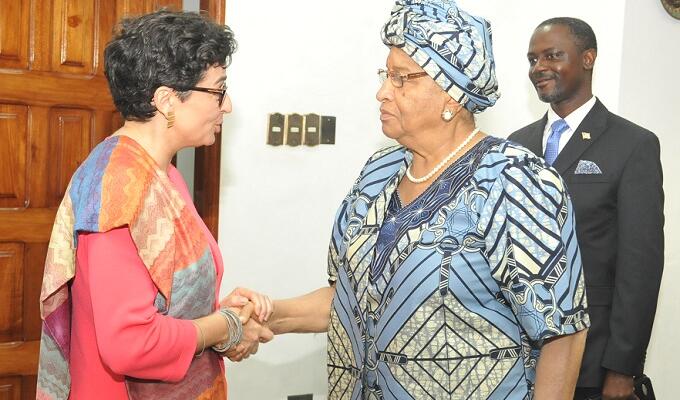
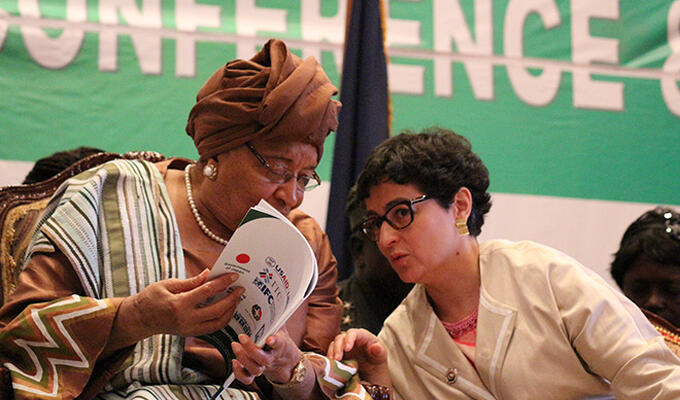
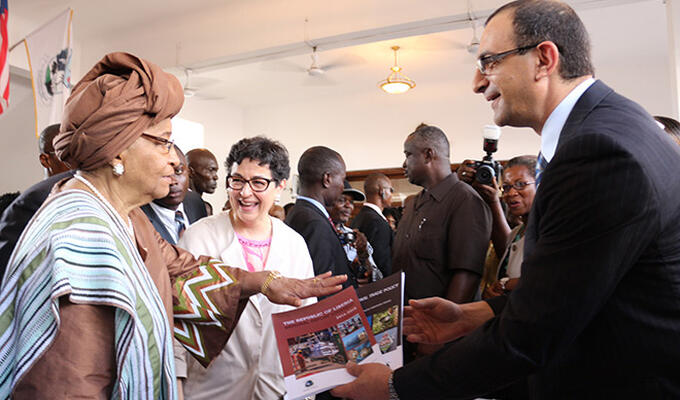
Liberia launches National Export Strategy and National Trade Policy
Liberia
today (29 April) launched its National Export Strategy (NES) and its National
Trade Policy (NTP) with a view to boost the capacities of its private sector
and re-connect the country with regional and global markets. The launch, which
took place at the National Micro, Small and Medium Enterprises Conference and
Trade Fair in Monrovia, comes after several rounds of multi-stakeholder
consultations led by the Ministry of Commerce and Industry in collaboration
with the International Trade Centre (ITC).
The NES and NTP will function as blueprints for the Government, the private
sector and Liberia's development partners in their joint efforts to help
Liberian SMEs enhance competitiveness and value addition. They will guide
Liberia's efforts to generate employment opportunities, improve the business
environment and explore means of sustainable growth.
'I am proud to launch the Liberia National Trade Policy 2014-2019 and the
Liberia National Export Strategy 2014-2019. These two documents outline the
Liberian Government’s strategy for creating inclusive growth through trade
competitiveness,' said Ellen Johnson Sirleaf, Liberia’s President.
'The trade policy serves as the Government’s overarching strategy for trade
steering the country towards regional integration into ECOWAS and multilateral
integration into the World Trade Organization.
The National Export Strategy provides sector support to key sectors where we
have the best opportunity to generate export diversification. Through
implementing this strategy we expect to create a vibrant and diversified export
basket and to open new markets and opportunities for business
owners,' Ms. Johnson Sirleaf said. ITC Executive Director Arancha González said: 'Trade is about finding
ways of adding value to a country’s goods and services, and through that get
greater access to local, regional and global value chains. This is important
for all countries, but for a post-conflict such as Liberia, the urgency is
greater as trade helps provide stability and security.' ‘Any country wishing to
navigate these value chains needs a compass. For Liberia, a least developed
country, the National Export Strategy and the National Trade Policy provide a
clear direction on how to best take advantage of the country's natural
resources and its people, women and youth, in a sustainable manner,’ Ms.
González said.
The NES targets the development of five priority sectors: cassava, cocoa, fish
and crustaceans, oil palm, and rubber. The strategy also targets three
trade-support functions – access to finance, quality management, and trade
logistics and facilitation – which has a positive impact on the export
competitiveness of all sectors. Work has also already begun on exploring the
opportunities offered by tourism and the furniture sectors.
The NTP, meanwhile, is Liberia’s first policy document that holistically
addresses issues related to trade. Its main objective is to promote the
integration of Liberia into the global economy through increasing the
competitiveness of its businesses, with a focus on the agricultural, industrial
and services sectors.
By promoting a balanced relationship between trade integration, sustainable
development and social inclusion, the NES and the NTP set out to boost
employment generation, improve livelihoods and reduce poverty.
Axel Addy, Liberia’s Minister for Commerce and Industry, said: 'Often
businesses cannot access finance to purchase needed equipment. Sometimes
farmers cannot get their goods to market, and are left to watch their produce
spoil. Other times businesses lack the skills necessary to run and maintain a
business. These are exactly the hurdles the NES and NTP seek to overcome:
they will guide the implementation of our country’s development programmes
and help boost our exports.'
For further information about Liberia's National Export Strategy and National
Trade Policy, please visit ITC's website:
Factsheet:
Liberia National Export Strategy
Factsheet: Liberia National Trade Policy
Note to Editor:
ITC is the joint agency of the World Trade
Organization and the United Nations. ITC assists small and medium-sized
enterprises in developing and transition economies to become more competitive
in global markets, thereby contributing to sustainable economic development
within the frameworks of the Aid for Trade agenda
and the Millennium
Development Goals.




